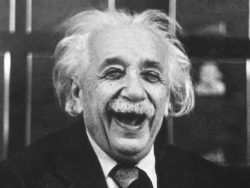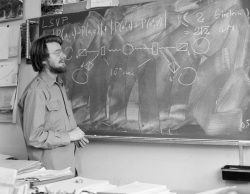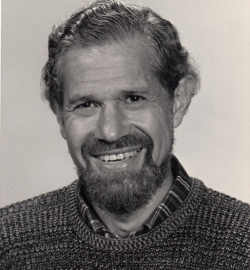 October 18, 2016
Published by Stephan Sponar
October 18, 2016
Published by Stephan Sponar
In their famous paper entitled ”Can quantum-mechanical description of physical reality be considered complete”, the authors consider quantum mechanics to be incomplete. They argue that a complete theory must represent both the position and the momentum of a particle at any time with arbitrary accuracy. Quantum mechanics indeed does not; hence it is incomplete.
 October 11, 2016
Published by Stephan Sponar
October 11, 2016
Published by Stephan Sponar
The spooky action at a distance or spukhafte Fernwirkung, as it was called originally by Einstein in his correspondence with various physicists, can be explained if the measurement outcome is already pre-determined at the time of the states creation. However, this information is not part of the quantum-mechanical description, especially according to the Copenhagen interpretation
 October 11, 2016
Published by Stephan Sponar
October 11, 2016
Published by Stephan Sponar
A Greenberger–Horne–Zeilinger (GHZ) state is an entangled quantum state involving at least three subsystems (particles) and was first studied by Daniel Greenberger, Michael Horne and Anton Zeilinger in 1989. The GHZ state has extremely non-classical properties, which manifest not only a statistical violation, as it is the case for violations of Bell’s inequality, but in a contradiction between quantum mechanics and local hidden variable theories.
 October 5, 2016
Published by Stephan Sponar
October 5, 2016
Published by Stephan Sponar
The original KS (oKS) proof, as given in their paper from 1967, operates on a three-dimensional complex Hilbert space . It requires the following two assumptions: (1) sets of triples of rays which are orthogonal in ; (2) a constraint to the effect that of every orthogonal triple one ray gets assigned the number 1, the two others 0.
 July 26, 2015
Published by Stephan Sponar
July 26, 2015
Published by Stephan Sponar
Ever since the very beginning of quantum theory there has been the debate over the ques- tion of whether measurable quantities have definite values prior to their measurement. The most prominent example of a situation where the predictions of quantum mechanics are incompatible with a large class of classical theories are violations of Bell’s inequality, obtained in various different quantum systems, ruling out local realism. Arguing in the same manner to that of Bell, an inequality was derived in 1985 by Leggett and Garg that can be seen as a Bell’s inequality in time.




